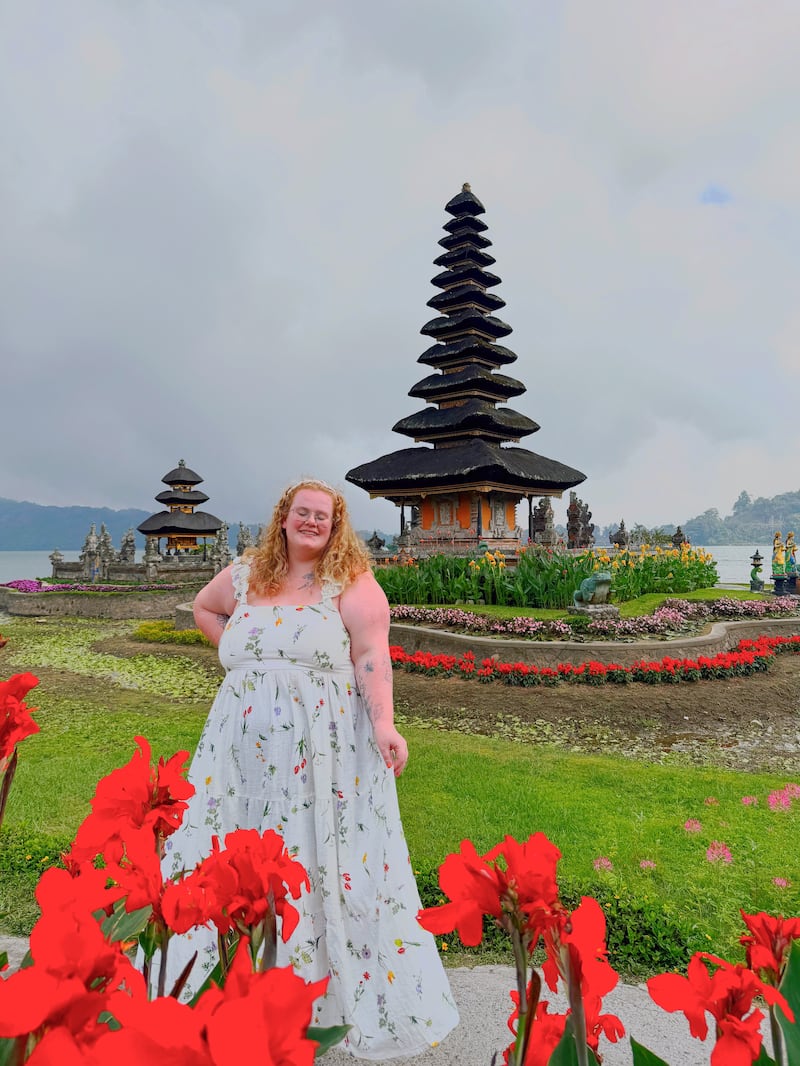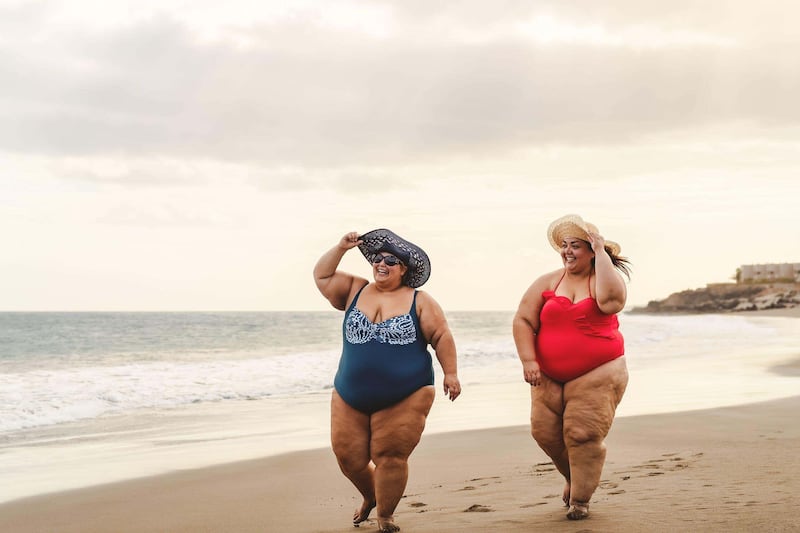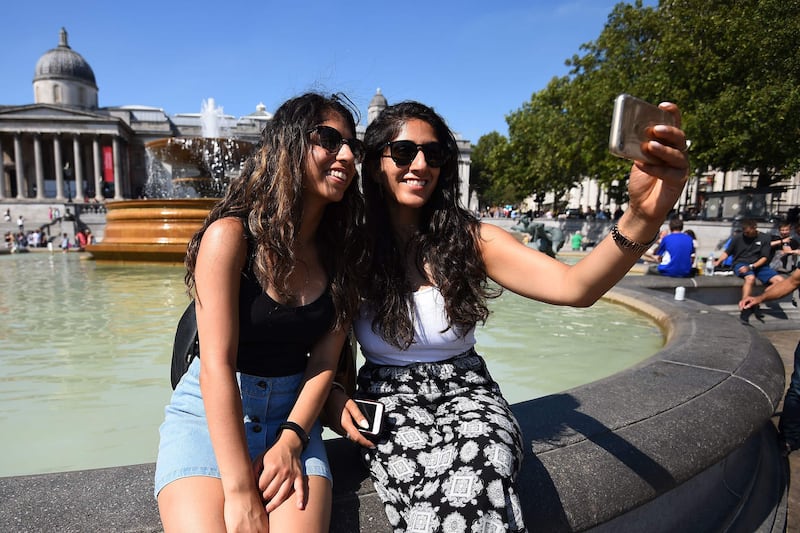Plus-size travellers have a number of challenges, whether it’s being cramped in an aeroplane seat, or feeling as though they cannot travel in the first place.
Despite 25.9% of adults in England being obese, according to the Government’s most recent survey, many plus-sized people believe the travel industry does not cater for them, with some turning to social media to raise their concerns.
We asked two plus-size travel influencers about what they believe would make travelling easier for them…
The perception of plus-size people

Kirsty Leanne, 29, an influencer from Telford, Shropshire, who thought she was “too fat to travel”, but now plans group holidays for curvy women, thinks perceptions of plus-size people need to change.
“It’s often believed that we’re not capable of travelling, we’re too lazy to enjoy travel, but for so many plus-size people, that’s not the case,” Leanne says.
“Adventure means something different to every single person, so no matter what your ‘travel’ looks like as a plus-size person, it’s valid.
“I used to tell myself that I needed to lose weight to travel, and it took me so long to realise that it doesn’t have to be like that.
“The world is available to you as you are now, and you don’t have to lose weight in order to enjoy yourself.”
Since posting about her plus-size travel experiences online, she has realised she is not alone.
She explains: “I’ll often get messages from plus-size people on social media telling me they feel the same, which makes me so sad that they’ve been made to feel like that. I want everyone to know there’s no size limit when it comes to seeing the world.
“Sure, there will be difficulties, but it’s not impossible.”
Jaelynn Chaney, a 26-year-old “fat activist” and influencer from Vancouver, Washington, who provides advice on plus-size travel, has experienced similar barriers.
“On a daily basis, I receive messages from people sharing their hesitations and fears about travelling due to negative past experiences or the perception that they won’t fit comfortably in certain spaces,” she says.
“Many have refrained from travelling for a decade or more, harbouring concerns about potential judgement and mistreatment based on their body size.
“It’s disheartening to witness how the belief that living in a larger body incurs higher costs and challenges in the realm of travel influences these decisions.
“This underscores the urgent need for a shift in societal perceptions and industry practices to ensure that everyone feels welcome and comfortable exploring the world, regardless of their body size.”
Plane seats

Leanne also posts Instagram reels rating the accessibility of plane seats and their seatbelts for plus-size people.
She says: “When it comes to planes, for instance, it would be great if there were policies in place that considered the comfort and safety of passengers of all sizes.
“Over the years, seats have shrunk and for plus-size people, it’s becoming more and more uncomfortable to fly.
“I’ll do my best to get an empty second seat next to me, but often, it’s not possible and it means I end up arriving at my destination in pain.”
Chaney echoes this view, and explains the impact: “The emotional toll is profound, knowing that the infrastructure and services are not always designed to accommodate different body types.
“This lack of inclusivity creates a pervasive sense of discomfort, as simple activities like finding suitable seating become emotionally draining.
“The physical discomfort is palpable, especially when contending with seats that are not accommodating, leading to enduring discomfort throughout the entire journey.
“The frustration is heightened by the awareness that many people lack empathy or knowledge on how to be accommodating, contributing to a pervasive feeling of being overlooked.”
Bigger sized equipment and amenities
Leanne adds: “Other ways in which things could be different are larger chairs in restaurants, and bigger towels and robes in hotels and spas.
“The most important change I think, however, is simply for information to be given on websites and booking platforms that allow plus-size people to make their own informed decisions.
“This means listing seat width in restaurants and theatres, giving info on the size of beds at hotels.”
Chaney also says: “Amenities at accommodations, such as towels and robes, may also lack the necessary size inclusivity, further hindering the comfort of plus-size travellers.”
“Beyond air travel, plus-size individuals may struggle to find excursions and equipment tailored to their body size, limiting their options for inclusive and enjoyable activities.
“Addressing these barriers is vital for fostering a more inclusive and accessible travel industry that recognizes and accommodates the diverse needs of all travellers, irrespective of their body size.”






